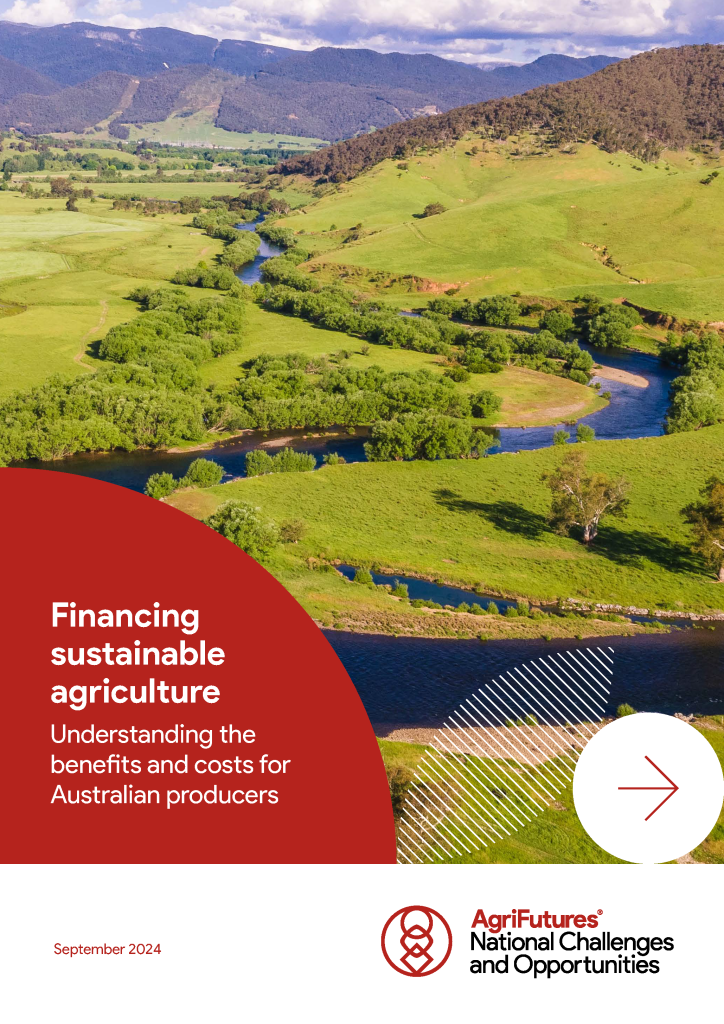The Australian agriculture sector is undergoing significant transformation as it adapts to an evolving global environmental, social and governance (ESG) landscape. As value chains and financial institutions respond to increasing climate, nature and social-related regulatory pressures and consumer demands, sustainable agricultural practices are becoming increasingly important for farmers, fishers and foresters seeking to future-proof their businesses.
This Financing sustainable agriculture: Understanding the benefits and costs for Australian producers report addresses the critical need for producers to understand the benefits and costs associated with sustainable agriculture and accessing sustainable finance opportunities. The sector faces challenges, such as climate change, environmental degradation and the need for improved social outcomes, and these necessitate a shift towards more sustainable practices to ensure long-term viability and resilience.
Key findings highlight the dynamic changes in the global ESG landscape, which are reshaping the operational, financial and strategic frameworks within which Australian producers operate. Sustainable agricultural practices are gaining attention due to heightened awareness of climate and environmental risks, evolving regulations and consumer demand for sustainable products. These trends present new opportunities and financial incentives for producers to both support and benefit from sustainability. The report provides several key recommendations for producers, namely:
- Understand how the regulatory and market landscape is changing, and how financiers are responding. Producers who integrate sustainability measures into their business will be better equipped to navigate the evolving ESG landscape and remain competitive. AgriFutures Australia Foreword
- Determine opportunities across your farming business to implement sustainable activities. Having a defined sustainability strategy will enable you to be clear on your business objectives and demonstrate your commitment to ESG.
- Take action, establish a plan to measure ESG outcomes (greenhouse gas emissions reduction, improved water quality, employee satisfaction) and document these outcomes. Proactively integrating sustainability monitoring and reporting into everyday business operations will help you prepare for future reporting demands.
- Understand the benefits and costs associated with sustainable finance. If sustainable activities cannot be self-funded, explore funding opportunities across public and private institutions and engage with your bank. Sustainable finance can open doors for producers to reap economic, social and environmental rewards.
This report was produced under AgriFutures Australia’s National Challenges and Opportunities focus area. Work in this space aims to identify, understand and respond to cross-sector issues impacting Australian rural industries.





